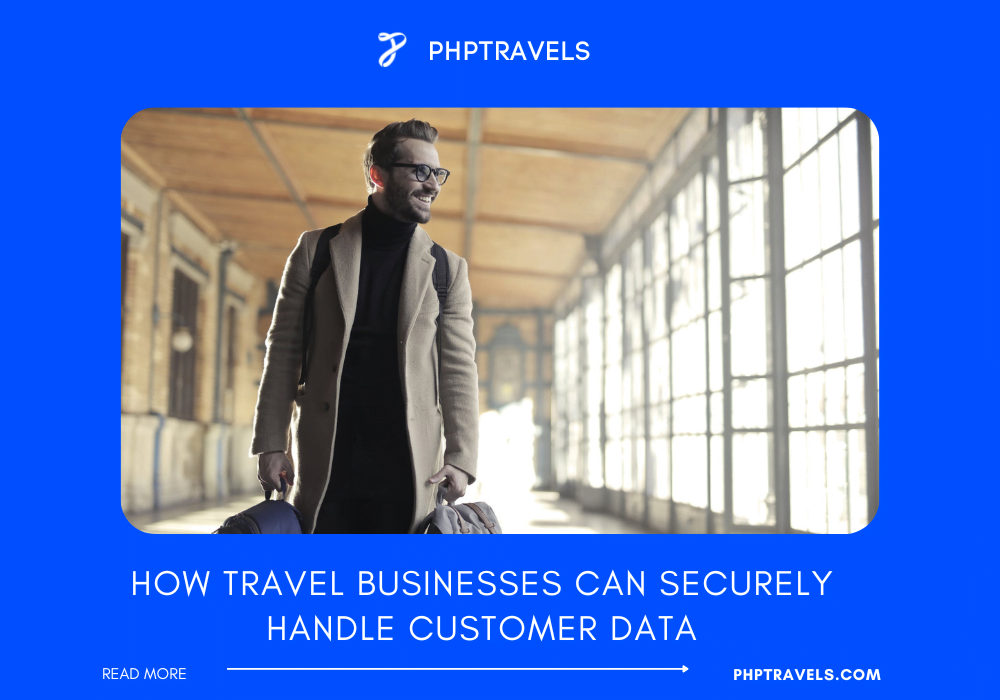To conduct proper business and cater to the changing needs of their customers, travel businesses need to handle customer data with the utmost sensitivity. Customer data management is vital due to a bevy of private financial information.
In today’s interconnected world, companies need to handle customer data securely. Here’s how travel businesses do it and how you can try it for your business too.
Update Your Hardware, Software, and Storage
Having a cybersecurity team in the tourism industry is not always a requirement in the tourism industry. Most travel companies use either a cloud-based system or an onsite data center. Smaller companies don’t even have dedicated servers to handle their business, simply having network storage and good internet.
The most important way to start with your cybersecurity efforts is to ensure that you install and update your software. Make sure that you have antivirus, antimalware, and antispyware protection. Have your software regularly updated and only work with what you need, rather than what you think you’d need.
One of the most significant issues that small travel businesses have with their networks is using software that they think works, only to never update it ever again. Software, including antivirus and antispyware, needs consistent updates as threats change.
If you don’t have it already, invest in a secure, dedicated server with minimal access used only for you and your employees. You can even invest in a cloud server if you don’t have the finances to buy hardware for your team.
Encrypt Your Network
With the software and the server, you want to ensure that your entire network is encrypted and protected, primarily when you transmit data. Encryption can help keep your data secure from anyone trying to intercept customer information.
Why should you do encryption now? The tourism industry handles a wealth of personal data, together with a combination of several important documents. From your passports, credit card information to your travel itinerary, the last thing you want is for these details to fall into the wrong hands.
Password protection is not enough anymore. Hackers can run exploits to access private information that is even put behind passwords. Even if companies add security policies, hackers will find malicious but unintended backdoors.
You can start small with your encryption efforts. Ensure that data transmission from your website uses SSL encryption and ensure that you have an HTTPS protocol for your website. If you can, use a virtual private network (VPN) to mask your IP address and encrypt your line. If you have to, encrypt your servers and end-user with data encryption solutions too.
Follow or Emulate GDPR Compliance Requirements
Depending on where you operate, one fantastic way travel businesses secure their data is compliance with the GDPR. The General Data Protection Regulation (GDPR) is an important EU legislation on data protection and privacy for end-users.
Travel businesses that comply with GDPR have requirements to give them certification. These rules include lawful and transparent processing of customer data, together with notifications and protections in case of an existing data breach.
For companies in the EU, GDPR compliance is a mark of protection. If you’re a business, you would want to emulate the rules that the EU set about to help protect your customer data. If you’re looking for a model to follow, these guidelines can help you outline the internal policies you can use to strengthen your data security further.
Secure Your Online Payment Processors
Travel businesses mostly use different online payment processors for ticketing and various travel packages. Frictionless experiences, however, may mean a less secure way of payment for your customers, which then puts their personal data at risk whenever they pay on your website.
There are three pillars to online payments in travel businesses. These are fraud management, regulatory compliance, and data security. These make the checkout experience simple, secure, and protected for all payment methods, from debit cards to credit cards.
To make your payment processing simple, there are several ways to do it. For starters, you can work with a third-party payment processor that handles all the security for you. Many of these processors have their own security environments that make it easy to secure payments.
If you’re looking to add your own payment processing, make sure to encrypt the data with SSL and TLS protocols, together with credit card payment tokenization, so hackers cannot access payment information with a stray link.
Request CVV to protect your company from identity thieves and require two-factor authentication for credit cards. Match IP address and billing information for your customers to flag potentially fraudulent transactions too.
Train Your Employees
Data privacy is crucial across all businesses, especially for the travel and tourism industry. This makes employees a valuable partner in cybersecurity measures to help you prevent hacking and protect customer data. Consistent education is vital for most travel businesses.
The tourism industry regularly trains everyone involved with security protections and measures to keep their data safe. Phishing attempts, malware, and ransomware can be pretty common in the industry, together with rather arcane ways of keeping passwords and data.
For example, some workers keep their usernames and passwords in notes stuck on their monitors. These pieces of paper are available for anyone to see, which opens the business to an endless number of eyes that can copy these security details.
Educate employees on the different types of cyberattacks they can experience. Ensure that they follow regulations to a T, especially if it’s strict compliance laws like the HIPAA or the GDPR.
Be Transparent
Like any business, the travel industry is privy to the entire customer journey. Companies will be there from start to finish, and a company needs to be upfront about its data privacy rules. At every touchpoint, it’s crucial to tell customers what data you get from them and what is kept during the process.
Do whatever privacy disclosure the law requires, from site cookies, tracking data, and credit card information. Make sure that the policy is clear and detail what kinds of protections you afford them. This can help build customer trust, especially towards a travel business that will handle sensitive information.
Final Thoughts
Travel businesses handle some of the most crucial customer data to give them a seamless, frictionless experience in their travels. Regardless of your size, it’s essential to follow the best practices for data privacy. Protecting customer data can assure your clients are safe and sound in your hands.




 How To Discover The Best Travel Agency In Calgary
How To Discover The Best Travel Agency In Calgary